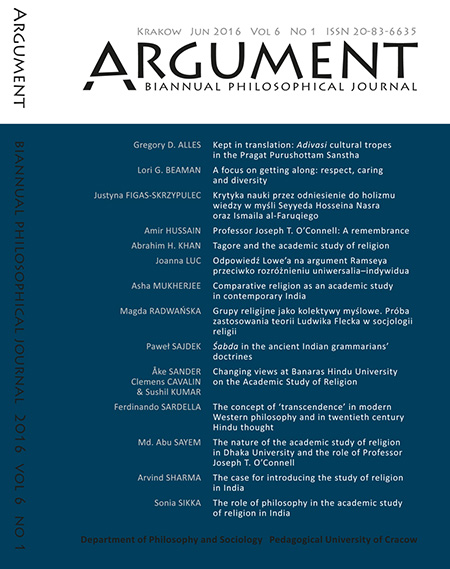Grupy religijne jako kolektywy myślowe. Próba zastosowania teorii Ludwika Flecka w socjologii religii
Słowa kluczowe:
religious group, religious experience, sociology of knowledge, Ludwik FleckAbstrakt
Religious groups as thought collectives. An application of the theory of Ludwik Fleck in the sociology of religion: In his theory of thought style and thought collective, Ludwik Fleck states that every act of cognition is associated with the past of a given eld of science and de‐ eply rooted in the cultural context. He also points out that the way of thinking of all exploring individuals is determined by their past and the past of the eld of knowledge, which is the object of cognition. The individuals are not autonomous; they constitute a part of a certain thought collective, and they are greatly dependent on it. The objective of this article is to nd out whether Ludwik Fleck’s theory can be used to explain religious phenomena and describe the structures of religious groups. The rst part of the article presents the arguments against the existence of an objective picture of the religious reality. Moreover, the author tries to prove the thesis, which assumes that every cognition and every religious experience are of a social na‐ ture. The second part is devoted to the analysis of the structure of religious groups understood as thought collectives. The third part of the article concerns the inadequacy of thought styles. The author also attempts to answer the question of whether the adoption of the proposed assumptions allows for one to enter into disputes over religious matters.


